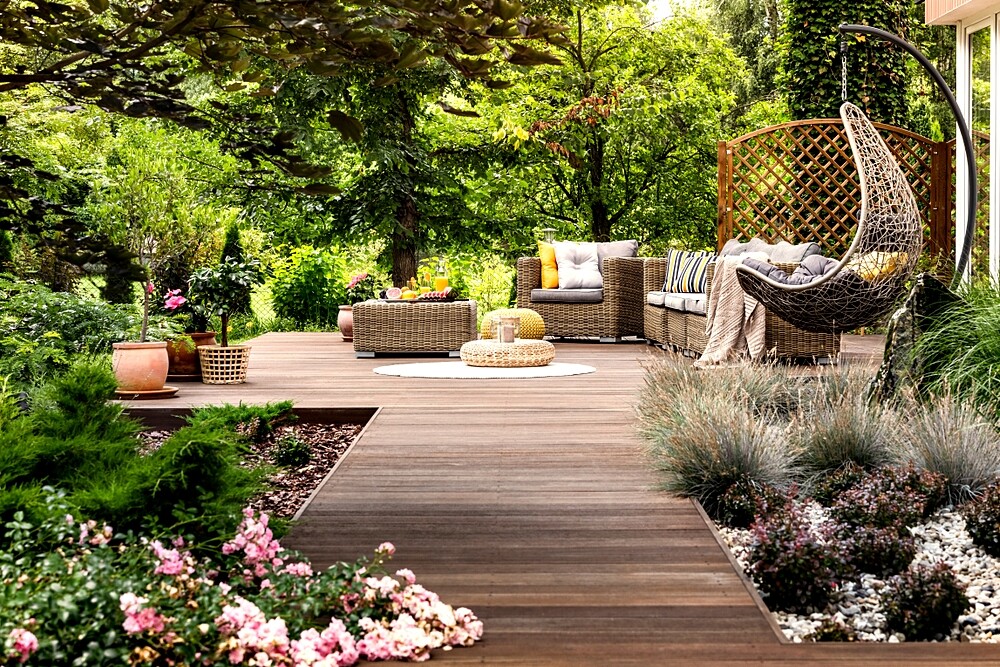Mistakes in the garden can be dangerous to health, bother others, harm nature or even cost a lot of money. With our tips you will learn how to avoid them.
1. Spray pesticides
Nobody likes unwanted visitors in the garden. In order to fight them, we like to resort to chemical means. But in doing so we damage the soil, the plants, and ultimately ourselves. The poisons get into the groundwater via the soil. Caution is especially important with the ingredient glyphosate – the active ingredient is considered carcinogenic. Alternatively, you can pick weeds by hand or use biological plant protection.
2. Wasteful use of water
Plants need water – no question. But they should not be over-watered either. Those who still want a lush green lawn should use rainwater. In addition, it should be watered at the right time. Studies have shown that, for example, 90 percent of the water used by lawn sprinklers evaporates directly unused at midday. Watering should therefore be done in the morning and evening hours.
3. Choose cheap plants
Flowers and ornamental plants from DIY stores and supermarkets in Europe are often contaminated with pesticides harmful to bees. According to a Greenpeace study, 79 percent of the ornamental plants examined contained substances that were dangerous to farm animals. According to this study, we should think twice before we resort to bargains and, in case of doubt, ask the seller.
4. Use garden soil with peat
Not only does the quality of the garden soil suffer from this mistake, but soil with peat is also bad for the environment. Plants and small animals are destroyed by the peat. Therefore, peat-free potting soil should be used.
5. Use artificial fertilizer
Without fertilizer there is usually no lush lawn and no beautiful flowers. But hands off artificial fertilizer. It does more harm than good. Plants become more susceptible and in the long run you ruin your soil. That is why you should use organic fertilizers such as compost or humus.
6. Use vacuum cleaners
A leaf blower or vacuum cleaner is loud and annoying – but even worse: it consumes unnecessary energy. It also eats everything that gets in its way, including useful small animals. So you should not be too lazy and use a rake.
7. Feeding birds incorrectly
If you want to do something good for the birds with food, you should also reach for the right food and not for cheap titmouse dumplings (they must be free of ragweed). You should also make sure that you only buy well designed birdhouses. The food must not get wet and the birds must not be able to walk around in the food – and thus eat their excrement.

